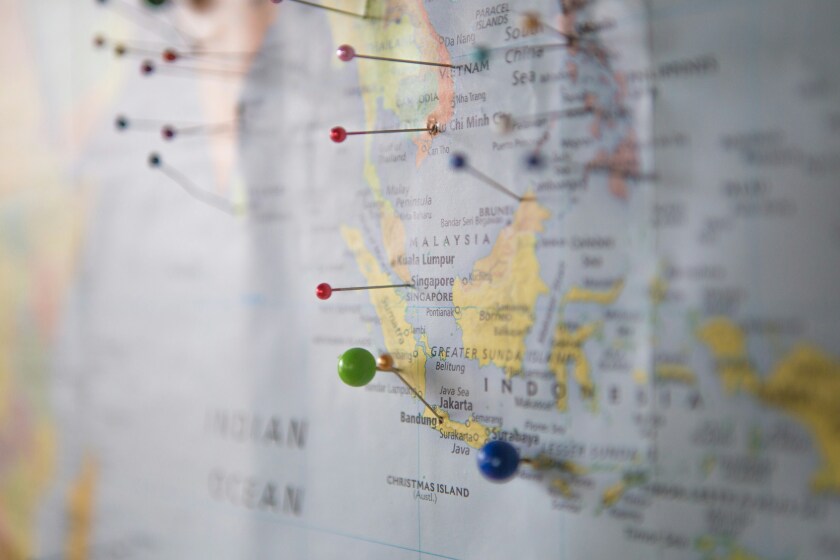Passengers’ personal belongings and goods shipments by Indonesian migrant workers
Minister of Trade Regulation No. 7 of 2024 (MoTR-7/2024), which came into effect on May 6 2024, has amended Minister of Trade Regulation No. 36 of 2023 concerning Import Policy and Regulations (MoTR-36/2023). The amendment pertains to several import policies and regulations, especially for passengers’ personal belongings and goods shipment by Indonesian migrant workers.
Under MoTR-36/2023, there were restrictions on the importation of various items, categorised as follows.
Restrictions on passengers’ personal belongings based on MoTR-36/2023:
No. | Type of goods | Restrictions |
1 | Rice | 5 kg per passenger |
2 | Sugar | 5 kg per passenger |
3 | Iron, steel, alloy, and derivatives | No value or quantity limits |
4 | Mobile phones, handheld computers, tablets | Two units per passenger per year upon arrival |
5 | Traditional medicine and supplements | Up to $1,500 |
6 | Cosmetics and household supplies | 20 pieces per person |
7 | Toys | Up to $1,500 |
8 | Bags | 2 pieces per passenger |
9 | Textile goods and other finished goods (e.g., blankets, sheets, tablecloths, towels, wipes, curtain blinds, mosquito nets, sacks/bags, tote bags, tarps, tents, nappies/sanitary towels) | 5 pieces per passenger |
10 | Finished clothing or clothing accessories | No value or quantity limits |
11 | Textiles and textile products | No value or quantity limits |
12 | Batik textiles and batik patterns (batik is an Indonesian dyeing technique) | No value or quantity limits |
13 | Alcoholic beverages | 1 litre |
14 | Footwear | 2 pairs per passenger |
15 | Electronics | 5 units, with a total value of up to $1,500 |
16 | Two- and three-wheeled bicycles | 2 units per passenger |
17 | Cosmetics | 20 pieces per passenger |
18 | Fishery products | 25 kg per shipment |
19 | Natural medicines, quasi-drugs, and health supplements | 5 pieces per passenger |
20 | Horticultural products | 5 kg per passenger |
21 | Garlic | 5 kg per passenger |
22 | Pearls | Up to $1,500 |
23 | Corn | 5 kg per passenger |
Restrictions on goods shipments by Indonesian migrant workers based on MoTR-36/2023:
No. | Type of goods | New items limit | Used items limit | Unit |
1 | Finished clothing and accessories | 5 | 15 | Pieces |
2 | Other finished textile goods | 5 | 5 | Pieces/set |
3 | Electronics, excluding certain handheld devices | 2 | 2 | Number of items |
4 | Footwear | 2 | 2 | Pairs |
5 | Cosmetics and household health supplies | 5 | 5 | Pieces |
6 | Children's toys | 4 | 4 | Pieces/set |
7 | Bags | 2 | 2 | Pieces |
8 | Food and drinks, excluding alcoholic beverages | 10 | N/A | Pack/package |
9 | Household items | 5 | 5 | Pieces/set |
10 | School supplies | 10 | 10 | Pack/package/pieces |
The restrictions on passengers’ personal belongings and goods shipments by Indonesian migrant workers have now been revoked, as of May 6 2024. Nevertheless, MoTR-7/2024 only revokes the import restriction policy, and other customs regulations, such as the implementation of import duty for goods with a value exceeding $500, still apply.
Mandatory implementation of Customs-Excise Information System and Automation 4.0
As a continuation of the transformation and integration of information and communications technology by the Directorate General of Customs and Excise (DGCE) through the Customs-Excise Information System and Automation (CEISA) 4.0 system, the DGCE issued Decision No. KEP-72/BC/2024 concerning Full Implementation (Mandatory) of CEISA 4.0 stage 9 on April 1 2024, which came into effect on April 2 2024.
As stipulated in KEP-72/BC/2024, there are four customs offices that will mandatorily implement CEISA 4.0, as follows:
Customs office | Type of service | |
1. | Merak Customs Office | Bonded area (excluding BC 1.6, BC 2.8, BC 3.3, and P3BET) |
2. | Surakarta Customs Office Type B | |
3. | Tangerang Customs Office Type A | |
4. | Marunda Customs Office Type A |
The Convention on Mutual Administrative Assistance in Tax Matters
Based on Article 20A of the Law on General Provisions and Procedures for Taxation, the minister of finance is authorised to establish cooperation for the implementation of tax collection assistance with partner countries or partner jurisdictions. The provisions on tax collection shall be carried out based on a reciprocal international agreement.
The international agreement shall be a bilateral or multilateral agreement that regulates cooperation in matters relating to tax collection assistance, including the Convention on Mutual Administrative Assistance in Tax Matters.
In 2014, the government of Indonesia, through Presidential Regulation No. 159 (PR 159), ratified the Convention on Mutual Administrative Assistance in Tax Matters. With this presidential decree, the Indonesian tax authority can actively collect taxes on Indonesian resident taxpayers' outstanding tax debts even though the person concerned is abroad, including the whereabouts of their assets.
However, PR 159 did not accommodate arrangements in tax collection assistance based on reciprocal international agreements, and therefore needed to be amended.
PR 56 came into effect on April 22 2024 and amends PR 159 to accommodate arrangements in tax collection assistance based on reciprocal international agreements.














